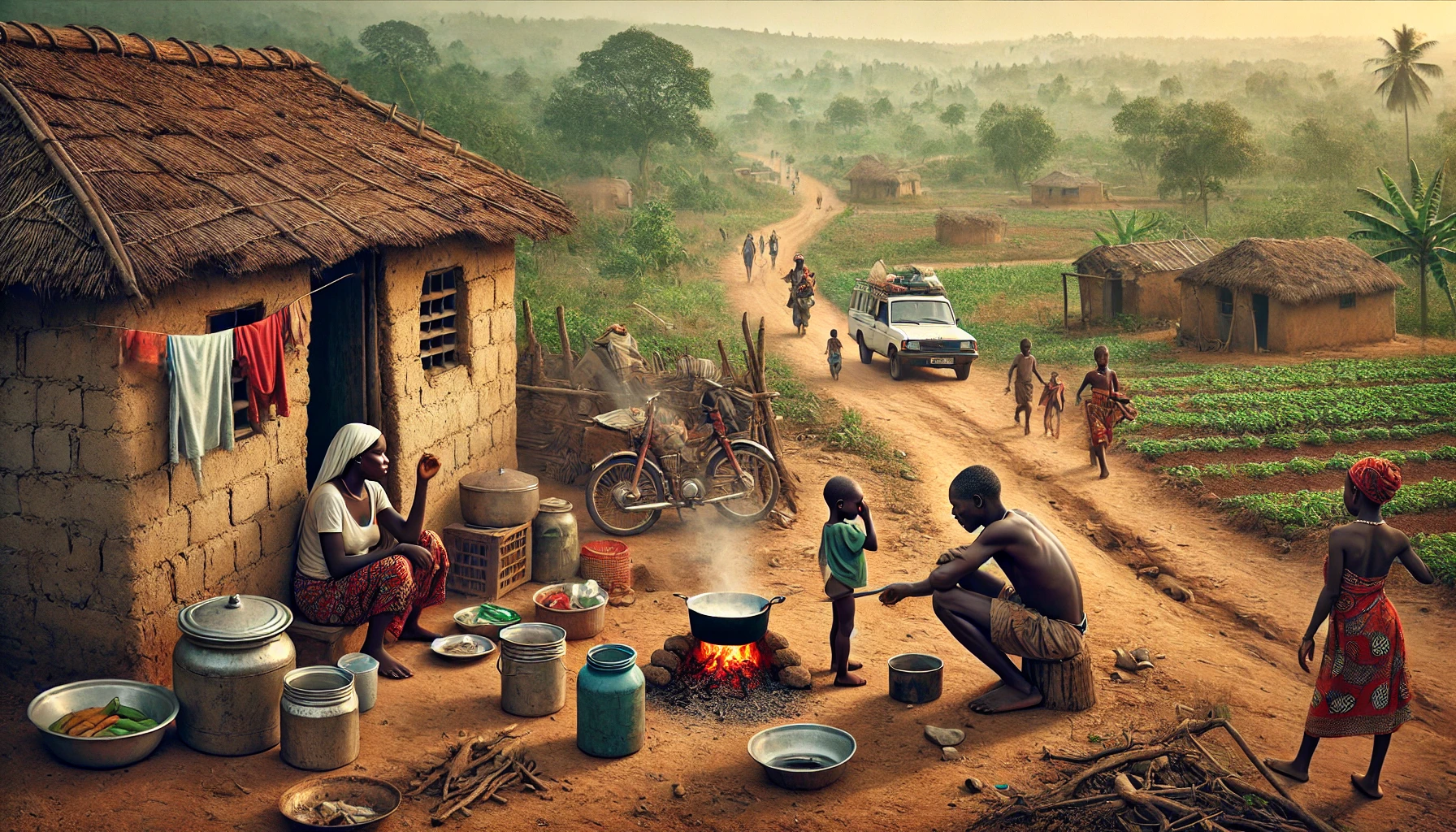Surviving the Price Crisis: How Rising Costs Are Deepening Poverty in Cote d'Ivoire
The study by the World Bank highlights how rising food, energy, and fuel prices in Côte d'Ivoire have severely impacted poor households, forcing them into negative coping strategies like reducing food intake and relying on traditional medicine. Women and children bear the brunt of these shocks, with increased risks of food insecurity, school dropouts, and domestic tensions.

A recent study by the World Bank, focusing on the adaptation mechanisms of poor households in Cote d'Ivoire, reveals the significant impact that price shocks in food, energy, and fuel have had on the country's most vulnerable communities. Conducted with contributions from African consultants and based on qualitative data collected in 2023, the study delves into the coping strategies adopted by poor households in response to multiple global crises such as COVID-19, climate change, and the war in Ukraine. These intersecting shocks have severely impacted households' access to basic services, increased food and financial insecurity, and weakened family structures. The findings highlight the desperate measures families have taken to survive, while also exposing the differentiated impacts on women, men, and children.
Families Adjust to Rising Prices Through Desperate Measures
Poor households have employed a range of negative coping strategies to manage the escalating cost of living. One of the most common methods has been reducing food consumption both in quantity and frequency while others have resorted to eating cheaper, less nutritious food. For many, this has meant relying on agricultural produce where available, though this option is limited to rural areas. Households in urban centers, like Abidjan, have found it more difficult to manage the rising cost of food and fuel, which has forced them to minimize the use of electricity and transport. The study also found that traditional medicine has become a fallback for many households unable to afford formal healthcare, further exacerbating the health risks among vulnerable populations.
Women Bear the Heaviest Emotional and Financial Burdens
The burden of these price shocks is not evenly distributed across households, with women and children facing the most severe consequences. Women, who are often responsible for managing household food and childcare, have reported significant emotional and financial strain. The study reveals that women are primarily tasked with ensuring children are fed, even when resources are scarce, while men, affected by unemployment and the loss of their role as breadwinners, often retreat from household responsibilities. This has led to an increased workload for women, both in terms of paid and unpaid labor, and many have had to take on additional jobs to supplement household income. Despite this, women's income generation opportunities remain limited, with most women engaged in low-paid and unstable work.
Children Face Increasing Risks of School Dropout and Child Labor
Children, particularly girls, are also bearing the brunt of these challenges. The report indicates that many children are at increased risk of dropping out of school due to their families' inability to afford fees or transportation costs. In some cases, families are forced to prioritize schooling for younger children, while older children are pulled out to work and help with household income. Girls, in particular, are vulnerable to being pulled into domestic work or even early pregnancy, as economic pressures push them to enter into relationships for financial support. This creates a vicious cycle, where girls are unable to continue their education, limiting their future opportunities and perpetuating the cycle of poverty.
Strained Family Dynamics and Rising Domestic Tensions
The study also highlights how the economic crisis has strained relationships within households. Women report increased tensions with their spouses, often leading to domestic disputes over finances, food, and household responsibilities. Men, feeling a loss of authority due to unemployment, have struggled with feelings of shame and frustration, which has in some cases led to increased incidents of intimate-partner violence. The economic pressures have not only affected spousal relationships but have also strained relationships between parents and children. Children, particularly boys, are becoming frustrated with their parents’ inability to provide for them, which has resulted in growing tension and a breakdown of trust within families.
Safety Nets and Community Support Offer Some Relief
Despite the overwhelming challenges, some resilience mechanisms have emerged among poor households. Participation in government safety net programs, such as the Productive Cash Transfer Program, has provided crucial financial support for some families. This program, implemented with technical and financial support from the World Bank, has allowed households to access small amounts of cash, which have been used to buy food, pay school fees, and invest in small businesses. Additionally, participation in informal savings groups, such as Village Savings and Credit Associations (AVEC), has enabled families to pool their resources and access emergency funds. These groups not only provide financial support but also foster social cohesion and solidarity among members, helping to mitigate the social isolation that often accompanies economic hardship.
However, while these programs have helped some households weather the current crisis, the study warns that without broader, more targeted interventions, many families remain trapped in a downward spiral of poverty. The report calls for expanding access to formal employment, particularly for women, and increasing the coverage of social safety nets to reach more vulnerable households. It also stresses the need for gender-sensitive policies that address the specific burdens placed on women and girls, as well as efforts to tackle the long-term impacts of food insecurity, school dropout rates, and early pregnancy on children’s future prospects. Ultimately, the study underscores the urgent need for coordinated policy interventions that not only address the immediate economic crisis but also build long-term resilience among Cote d'Ivoire's poorest communities.
- FIRST PUBLISHED IN:
- Devdiscourse
ALSO READ
Innovating India: Transforming Healthcare at DHN Healthtech Challenge 2024
Ministry Strengthens Ties with Faith-Based Organizations to Enhance Healthcare in Kenya
Evexia Lifecare's Strategic Global Healthcare Expansion
Fortis Healthcare to Raise ₹1,500 Crore Via NCDs
End ‘collective amnesia’ over COVID-19, says UN health agency WHO










